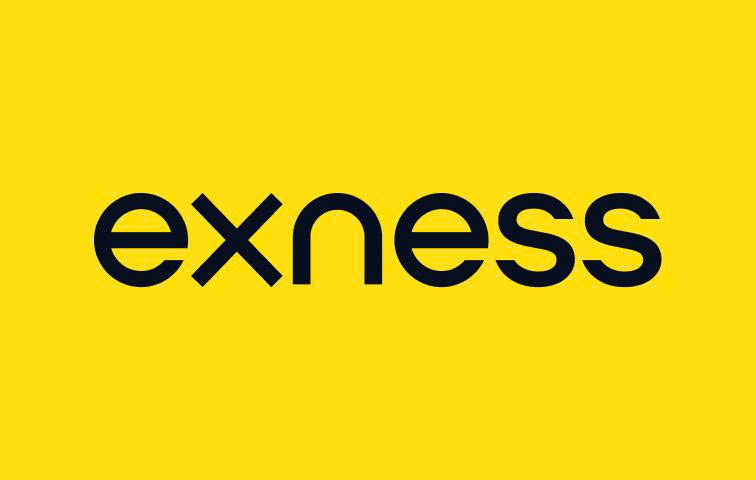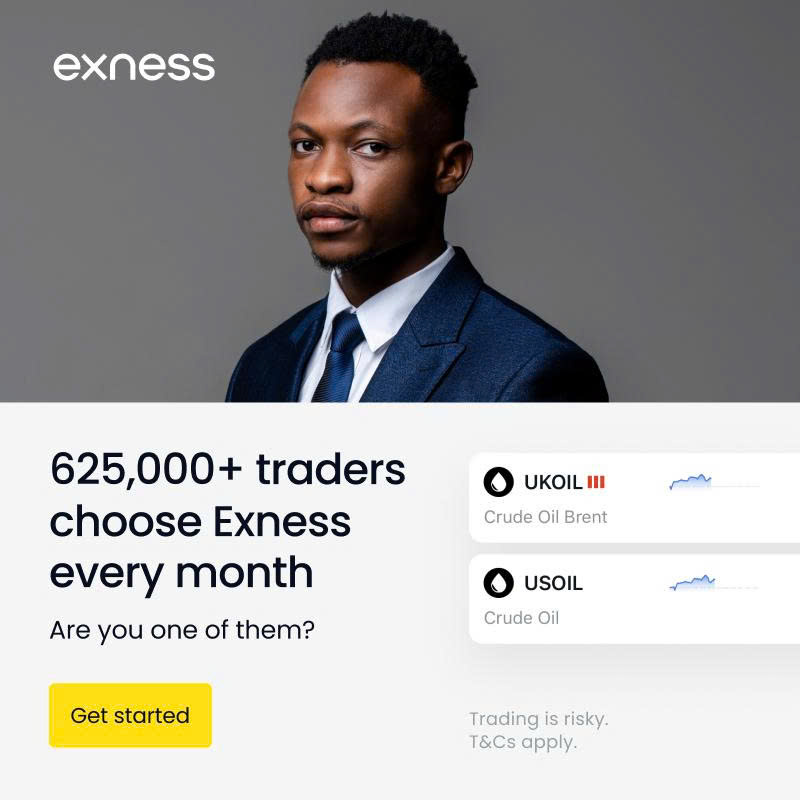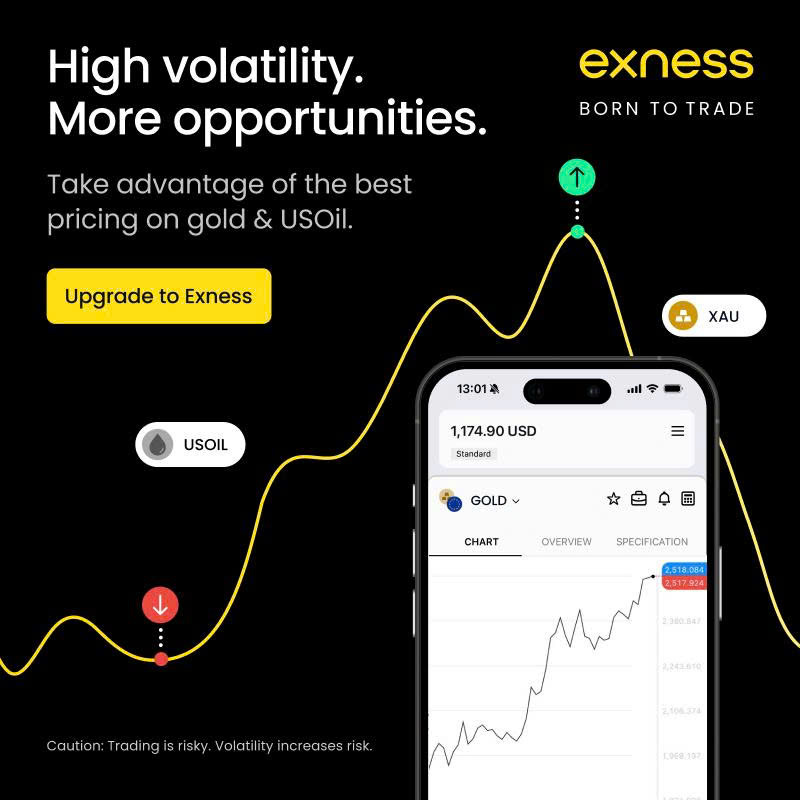
9 minute read
Does Exness Still Work in India? A Comprehensive Review for 2025
from Exness
by Exness Blog
Forex trading has surged in popularity in India, driven by growing interest in global financial markets. Among the many platforms available, Exness has emerged as a prominent choice for Indian traders due to its user-friendly interface, competitive spreads, and diverse trading instruments. However, a critical question persists: Does Exness still work in India in 2025? With India’s complex regulatory landscape governed by the Reserve Bank of India (RBI) and the Securities and Exchange Board of India (SEBI), traders are understandably cautious about the platform’s legality and functionality. This article provides an in-depth analysis of Exness’s status in India, its features, regulatory considerations, and practical tips for Indian traders.

💥 Trade with Exness now: Open An Account or Visit Brokers 🏆
Understanding Exness: A Global Forex Broker
Founded in 2008, Exness is a globally recognized forex and CFD (Contract for Difference) broker headquartered in Cyprus. It serves over 800,000 traders worldwide, including a significant user base in India, where it accounts for approximately 6.1% of its global traffic. Exness offers a wide range of trading instruments, including:
· Forex: Over 107 currency pairs, including major, minor, and exotic pairs.
· Cryptocurrencies: Bitcoin, Ethereum, Ripple, and more, with no swap fees.
· Commodities: Gold, silver, oil, and other assets with leverage up to 1:200.
· Stocks and Indices: Access to global stocks and indices like the US Tech 100 and S&P.
Exness is renowned for its low spreads, fast execution (orders processed in milliseconds), and instant withdrawals, with over 98% processed in under a minute. The platform supports multiple trading terminals, including MetaTrader 4 (MT4), MetaTrader 5 (MT5), Exness Trade app, and a web-based terminal, ensuring flexibility for traders on the go.
The Legal Landscape of Forex Trading in India
To determine whether Exness still works in India, we must first understand the regulatory framework governing forex trading in the country. Forex trading in India is regulated by two primary authorities:
· Reserve Bank of India (RBI): The RBI oversees foreign exchange transactions under the Foreign Exchange Management Act (FEMA). Indian residents are restricted to trading currency pairs involving the Indian Rupee (INR), such as USD/INR, EUR/INR, GBP/INR, and JPY/INR, through authorized platforms like the National Stock Exchange (NSE) or Bombay Stock Exchange (BSE).
· Securities and Exchange Board of India (SEBI): SEBI regulates financial markets and ensures that trading activities are fair and transparent. It does not directly oversee international forex brokers like Exness, creating a regulatory grey area.
According to FEMA, trading non-INR currency pairs or using offshore brokers for speculative trading is technically prohibited, as it may lead to capital outflows. The RBI maintains an Alert List of unauthorized entities, which has included platforms like OctaFX and Alpari but does not currently list Exness. This absence suggests that Exness is not explicitly banned in India, but its lack of SEBI registration places it in a legal grey zone.
Does Exness Operate Legally in India?
The short answer is: Exness operates in a legal grey area in India. While it is not explicitly banned, it is not registered with SEBI or RBI, meaning Indian traders using Exness for non-INR pairs or CFDs may violate FEMA guidelines. However, Exness remains accessible to Indian traders through its offshore entity, Exness (MU) Ltd, regulated by the Financial Services Commission (FSC) in Mauritius, as well as other international authorities like the Financial Conduct Authority (FCA) in the UK and the Cyprus Securities and Exchange Commission (CySEC).
For Indian traders, the key to using Exness legally is to stick to INR-based currency pairs and comply with FEMA regulations. Traders can open accounts, complete verification, and fund them using INR via local payment methods like UPI or Netbanking. However, trading non-INR pairs or cryptocurrencies through Exness could attract scrutiny from Indian authorities, as these activities fall outside permitted guidelines.
Risks of Using Exness in India
While Exness is accessible, traders should be aware of potential risks:
· Regulatory Non-Compliance: Since Exness is not SEBI-regulated, traders have no legal recourse in India for disputes or losses.
· Banking Restrictions: Indian banks, under RBI oversight, may flag or reject transactions to offshore brokers, leading to delays or frozen accounts.
· FEMA Violations: Trading non-INR pairs or using international payment gateways could violate FEMA, potentially resulting in penalties, though enforcement against individual retail traders is rare.
· High Leverage Risks: Exness offers leverage up to 1:2000 or even unlimited for certain accounts, which can amplify both profits and losses if not managed carefully.
Despite these risks, many Indian traders continue to use Exness due to its robust features, global reputation, and accessibility. The platform’s adherence to international regulations and use of segregated client accounts provide a degree of security, though traders must exercise caution and stay informed about RBI updates.

💥 Trade with Exness now: Open An Account or Visit Brokers 🏆
Key Features of Exness for Indian Traders
Exness offers several features that make it attractive to Indian traders, despite the regulatory challenges:
1. User-Friendly Platforms
Exness provides multiple trading platforms tailored to different needs:
· MetaTrader 4 and 5: Industry-standard platforms with advanced charting, automated trading via Expert Advisors, and 38 technical indicators on MT5.
· Exness Trade App: A proprietary mobile app for Android and iOS, offering real-time market data, one-click trading, and instant notifications. The app replicates desktop functionality, making it ideal for traders on the move.
· Web Terminal: A browser-based platform that requires no downloads, compatible with both MT4 and MT5, and supports all Exness account types.
2. Flexible Account Types
Exness offers a variety of account types to suit different trading styles:
· Standard Account: Ideal for beginners, with no minimum deposit and competitive spreads.
· Professional Accounts: Designed for experienced traders, offering tighter spreads, higher leverage, and faster execution. Examples include the Pro, Zero, and Raw Spread accounts.
3. Competitive Trading Conditions
· Low Spreads: Exness boasts some of the tightest spreads, with Zero accounts offering 0.0 pips for 95% of the time on major pairs. Spreads may fluctuate during volatile periods.
· Instant Withdrawals: Over 98% of withdrawals are processed in under a minute, with support for local payment methods like UPI and Netbanking.
· High Leverage: Up to 1:2000, though Indian traders should use leverage cautiously to comply with risk management practices.
4. Multilingual Support
Exness provides 24/7 customer support in multiple languages, including Hindi, English, and regional languages. Indian traders can access support via live chat, email, or phone, with a local support hub in Mumbai’s BKC district.web.
Recent Updates to Exness in India (2025)
As of 2025, Exness has introduced several updates to enhance its services for Indian traders:
· Exness Go App: Launched in 2025, this app offers improved conditions, lower costs, and 24/7 support. However, some users have reported performance issues, such as slowdowns on certain devices (e.g., Mi A3), particularly in the history section. Exness is addressing these concerns through ongoing updates.
· Social Trading Platform: A unique feature allowing traders to copy strategies from experienced traders, ideal for beginners or those looking to diversify.
· Enhanced Payment Options: Exness now supports seamless deposits and withdrawals via UPI, Netbanking, and e-wallets, catering to Indian users’ preferences.
· Increased Regulatory Scrutiny: The RBI’s 2023 Alert List expansion, which added 75 unauthorized entities, has heightened caution among Indian traders. While Exness is not on this list, traders must remain vigilant about compliance.
However, some users have reported issues with the latest app update (April 2025), including login difficulties and withdrawal rejections. Exness has responded by encouraging affected users to contact support for resolution.
Practical Tips for Using Exness Safely in India
To trade with Exness while minimizing risks, consider the following:
· Stick to INR Pairs: Focus on USD/INR, EUR/INR, etc., to comply with FEMA regulations.
· Use Local Payment Methods: Fund accounts via UPI or Netbanking to avoid banking restrictions.
· Monitor RBI Updates: Regularly check the RBI’s Alert List and advisories to stay compliant.
· Keep Records: Document all transactions for tax purposes, as gains must be declared under “Income from Other Sources.”
· Start with a Demo Account: Practice strategies risk-free before trading with real funds.
· Manage Leverage: Use Exness’s high leverage options cautiously to avoid significant losses.
Alternatives to Exness in India
Given the regulatory grey area, some traders may prefer SEBI-regulated brokers or alternative platforms. Options include:
· Zerodha: A SEBI-regulated broker offering INR-based forex trading on NSE/BSE.
· OneSafe: A payment solution blending traditional and Web3 services, praised for low fees and crypto support.
· eToro: A global platform offering CFD trading, though it also operates in a grey area in India.
Does Exness Still Work in India?
Yes, Exness remains operational in India as of 2025, offering Indian traders access to global markets through its robust platforms and competitive conditions. However, its lack of SEBI regulation means traders must exercise caution, particularly when trading non-INR pairs or using international payment methods. By sticking to INR-based pairs, using local payment options, and staying informed about RBI regulations, Indian traders can leverage Exness’s features while minimizing legal and financial risks.
Conclusion
Exness continues to be a viable option for Indian traders in 2025, thanks to its advanced platforms, low spreads, and instant withdrawals. However, its status in a regulatory grey area requires traders to be proactive in ensuring compliance with Indian laws. By focusing on INR pairs, using demo accounts, and maintaining proper records, traders can use Exness effectively while navigating the complexities of India’s forex regulations. Whether you’re a beginner or an experienced trader, Exness offers powerful tools to enhance your trading journey—provided you approach it with caution and responsibility.
💥 Note: To enjoy the benefits of the partner code, such as trading fee rebates, you need to register with Exness through this link: Open An Account or Visit Brokers 🏆
Read more:










